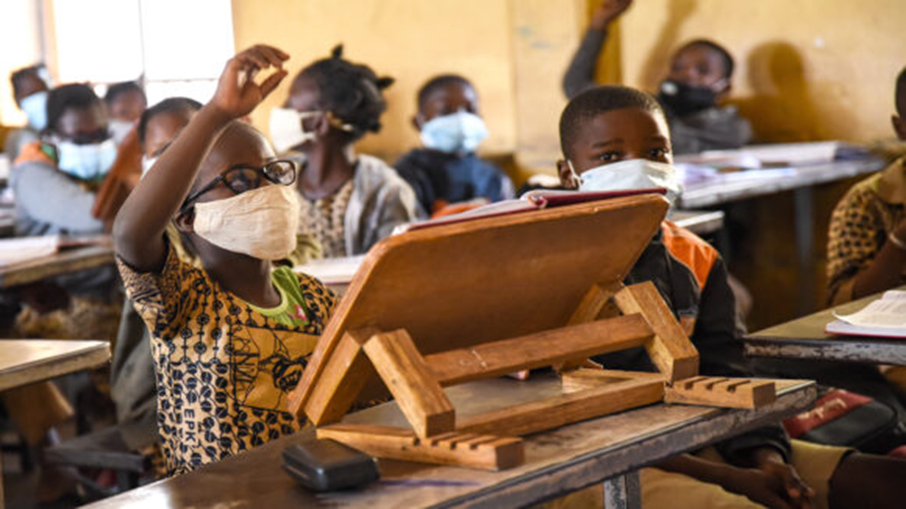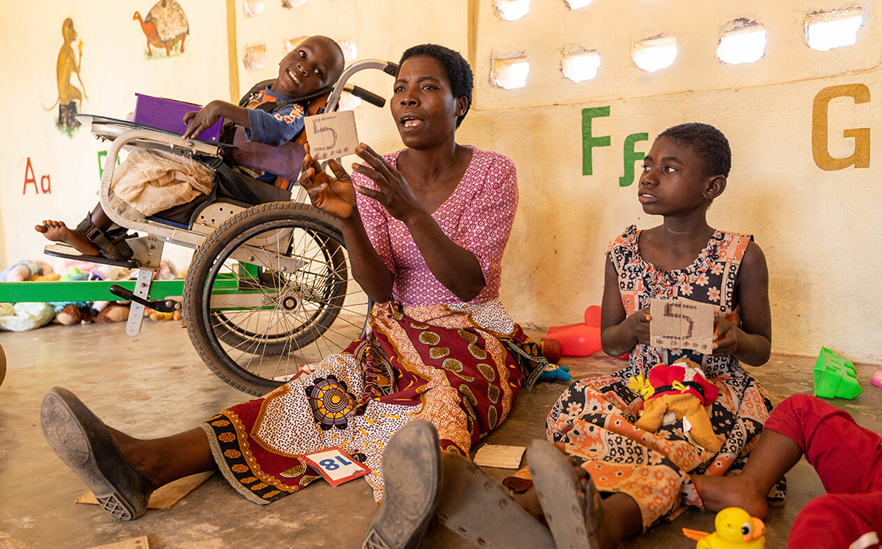Author: Takyiwa Danso, Sightsavers, September 2022
We’re setting homework for global education leaders to protect the rights of children with disabilities. Here’s why we’re doing it.
World leaders and the international education community convene in New York on 19 September at the Transforming Education Summit (TES). The summit will mobilise political ambition, action and solutions to transform the future of education and accelerate progress towards Sustainable Development Goal 4 (SDG4) – inclusive and equitable education for all children and young people.
In preparation for the summit, over the last few months education ministers have been focusing on the key areas that need attention for transformative change in our education systems: inclusive, equitable, safe and healthy schools; learning and skills for life, work and sustainable development; teachers and the teaching profession; digital learning; and financing of education.
But while discussions have highlighted the many challenges faced by children and young people around the world, the 240 million children with disabilities are being forgotten. Widening inequalities, global austerity cuts to education budgets, the impacts of COVID-19 and climate change threaten the future of learning for all, but the impacts for children with disabilities are disproportionately higher.

What is the issue?
Before the COVID-19 pandemic, children with disabilities were already among the most excluded from learning. Nearly 49% of children with disabilities worldwide were likely to have never attended school, and even if they did, they were usually less likely to progress or receive proper support within the school system. Girls with disabilities often experience double discrimination based on their gender and disability, facing even more barriers to participating fully in society.
We know pandemic-related school closures disrupted lives of millions of children around the world, but for many children with disabilities the impact has been devastating. Schools are integral to the life and wellbeing of all children, as places for learning, personal development, socialising and receiving other vital services including meals and hygiene care. But the sudden shift to remote schooling often left children with disabilities unable to continue learning and cut them from the benefits of the school environment.
Pre-existing digital inequalities have worsened. While more than 90% of countries offered some form of distance learning, at least 31% of children were unable to benefit from this due to limited access to internet and technology, inaccessible tools, or lack of access to tools.
Children with disabilities already faced numerous barriers to learning and by not including them in the pandemic recovery, they risk being left behind for good. The window of time to enact change and get back on track to achieve SDG4 is narrowing.

What are we calling for at the summit and why?
Until now, there has been a lack of urgency to use the TES to demand more inclusive education systems. Sightsavers and partners are calling for world leaders to act now so that the 240 million children living with disabilities around the world can access their right to a quality, inclusive education.
We want to see world leaders deliver on their promise to ‘leave no one behind’ by ensuring disability inclusion is fully embedded into their national and global education plans. That’s why through our #DoYourHomework campaign we’re setting world leaders six pieces of homework to build an inclusive education system.
- Sociology homework: Include children with disabilities in mainstream education and collect data that includes everyone
- Economics homework: Invest in inclusive training, so that teachers can respond to diverse learning needs and develop flexible curriculums for all children
- Politics homework: Implement policies, plans and budgets to include and support children with disabilities
- Computing homework: Tackle the digital divide and ensure digital learning and other education technologies are accessible for all
- Maths homework: Allocate sustainable financing for inclusive education so that all children with disabilities can learn
- Design homework: Involve people with disabilities in all stages of inclusive education design and make sure their voices are heard
Through our education work, Sightsavers has demonstrated that change is possible and that when education systems are inclusive, children with disabilities can not only access school but can learn among their peers and thrive.
We have tested approaches that embed inclusive education at all levels of the education system including:
Governments must adopt these approaches and embed them in policy. Education transformation means doing things differently. Strong political leadership, sufficient financing, and the implementation of robust institutional frameworks founded on inclusion and equity are required to make quality education a reality for all children.
None of this is possible without the voices of people with disabilities at the helm of decision-making. The TES must ensure the full representation and participation of children and youth with disabilities, their families, and their networks. Their knowledge, expertise and experience are key to creating sustainable change.
Time is running out for us get on track to meet SDG4. Priorities defined at the TES have the potential to change the future of education. We’re looking to world leaders to do their homework to ensure education transformation is truly inclusive, so the 240 million children with disabilities worldwide are not left behind.
You can also find this blog on Sightsavers’ website.


